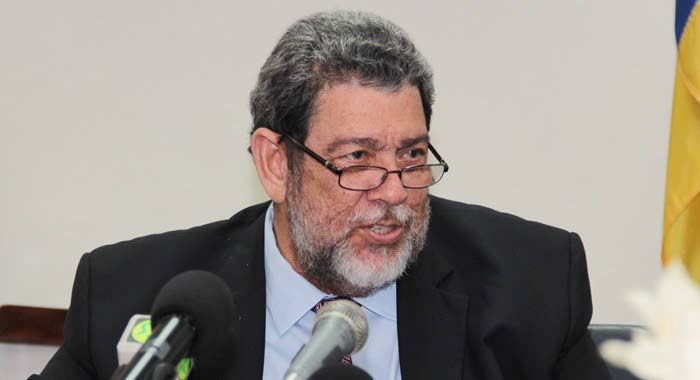Dr. Ralph Gonsalves, Prime Minister of St Vincent and the Grenadines, has raised significant concerns about the Caribbean Community’s (Caricom) ability to coordinate its foreign policy effectively. Speaking at the University of the West Indies (UWI) Vice Chancellor’s Forum on October 21, Gonsalves criticized the bloc’s inability to agree on fundamental issues, such as defining a “zone of peace.” He specifically questioned Trinidad and Tobago’s stance on labeling the Caribbean and Latin America as a zone of peace, calling it a “misguided notion” that requires urgent reconsideration. The forum, titled *Promises, Passports and Possibilities: Free Movement, the CSME and the Caribbean Regionalisation Project*, was streamed live and attended both in person and online. Gonsalves emphasized that a zone of peace, as defined by international law, refers to state actors agreeing not to intervene in or threaten one another. However, he clarified that this concept does not extend to non-state actors like drug traffickers, arms dealers, or human traffickers. His remarks followed comments by Trinidad and Tobago’s Prime Minister Kamla Persad-Bissessar, who, at the 80th United Nations General Assembly, argued that the Caribbean could no longer be considered a zone of peace due to rising transnational crime. Gonsalves highlighted Caricom’s inconsistent response to tensions between the US and Venezuela, warning that any external intervention in Venezuela could lead to mass migration and security crises in the Caribbean. Drawing parallels to Europe’s migration challenges, he cautioned that Venezuelan refugees could overwhelm neighboring countries like Trinidad and Tobago, Grenada, and St Vincent. Gonsalves urged regional leaders to approach these issues with calm, patience, and maturity, emphasizing the need for practical and principled decision-making. He also called for deeper Caricom integration, stressing the importance of the Caribbean Court of Justice (CCJ) in interpreting Caricom law and the need for comprehensive rights for migrants, including access to education and healthcare. Gonsalves lamented the limited implementation of free movement rights among Caricom member states, criticizing efforts to restrict movement as counterproductive to addressing demographic and labor challenges. He also highlighted ongoing trade, currency, and airspace disputes, particularly with Trinidad and Tobago, as barriers to regional progress. Gonsalves concluded by warning that unresolved issues could deepen regional tensions and hinder Caricom’s integration efforts.
